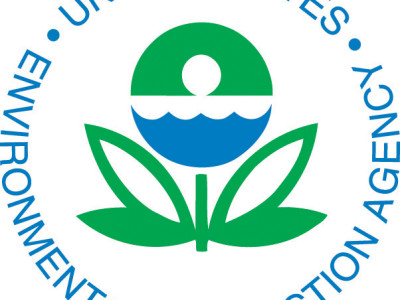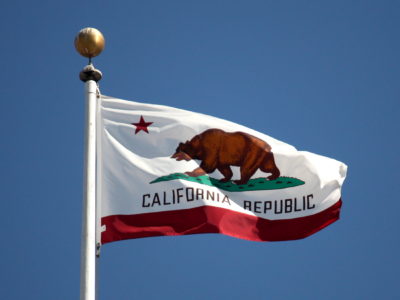Politics
Possible EPA Picks
Here are some of the names floating around in the media — from horrible to less bad.
Who will head EPA? Various lists of possible candidates have been circulating in the media. I’ve put together the names that have been mentioned in places like Politico and the Washington Post, along with the results of some very quick research. I’d appreciate hearing from readers who may be familiar with some of these possible nominees. Take this …
Continue reading “Possible EPA Picks”
CONTINUE READINGThe U.S. Goes Right, California Goes Left
Significant progressive wins in the Left Coast on election night
We all know election night took a turn to the right at the national level. But here in California, the results were all about the progressives. The California legislature saw Democrats get major pickups to move forward on a progressive agenda, although as KPCC radio reported, they may have just failed to achieve a 2/3 …
Continue reading “The U.S. Goes Right, California Goes Left”
CONTINUE READINGWhat Will Trump Do? Maybe Not What We Expect.
If he cares about 2020, he’ll have to do some recalibrating.
To be honest, no one really knows what Trump will do. Maybe not even Trump. The obvious is often the safest best. In this post, I’m going to speculate about another, slightly less dire, possibility. He may take the most obvious path – which would mean ripping the heart out of our environmental laws. For instance, he …
Continue reading “What Will Trump Do? Maybe Not What We Expect.”
CONTINUE READINGWhat Does a Trump Presidency Portend for California’s Environmental Policies?
Constitutional Issues Loom Large in Future, Likely Federal-California Legal Confrontations
Sensing political storm clouds ahead, California Governor Jerry Brown yesterday issued a statement on the presidential election results that concludes: “We will protect the precious rights of our people and continue to confront the existential threat of our time–devastating climate change.” Several of my Legal Planet colleagues have recently posted thoughtful commentary on what Donald Trump’s …
Continue reading “What Does a Trump Presidency Portend for California’s Environmental Policies?”
CONTINUE READINGTrump and Climate Change
There’s Nothing Good to Be Said About It
A Trump Presidency is a disaster for U.S. leadership on climate change. There’s no other way to spin this election. Myron Ebell, the head of Trump’s EPA transition team, thinks that President Obama’s Clean Power Plan is illegal, the Paris Agreement unconstitutional and that climate change “is nothing to worry about.” Though most of the …
Continue reading “Trump and Climate Change”
CONTINUE READINGDefending the Environment in Dark Times
Where do we go from here?
Yesterday’s election didn’t turn out the way many of us hoped. The results may put in danger much of the progress made over the past eight years in addressing environmental issues and even risk some earlier accomplishments. What’s done is done, however, and we need to think about how to move forward. The Bush years …
Continue reading “Defending the Environment in Dark Times”
CONTINUE READINGCalifornia’s Big Land Use And Transportation Initiatives To Watch Today
Measures in both San Francisco and Los Angeles could have a big impact on the future of the state
Yes, there’s a lot happening today in the national election. Lost in the shuffle though are three big initiatives before some California voters that could have a big impact on the state’s transit and development future. Measure RR to restore BART: this is an unusual transit measure because it’s one of the first I’ve seen …
Continue reading “California’s Big Land Use And Transportation Initiatives To Watch Today”
CONTINUE READINGHanging in the Balance: The Future of Environmental Law
10 huge questions that will be answered today.
By tomorrow morning, we should know a lot more about the future of environmental law — maybe, whether it has any future. We’ll certainly learn whether the U.S. will give up the fight against global warming. Whichever way you vote matters! Here are ten key questions we will be able to answer 24 hours from now: …
Continue reading “Hanging in the Balance: The Future of Environmental Law”
CONTINUE READINGAt the Tipping Point
Tomorrow’s vote is a tipping point for climate policy, with large, irreversible consequences.
We’re now at a tipping point for climate policy. Tomorrow’s election will send us down one of two very different paths for years to come. The political system lends itself to such tipping points in policy. Linear systems don’t have tipping points: small changes have small effects that can be reversed. Tipping points are a …
Continue reading “At the Tipping Point”
CONTINUE READINGStill Undecided? Here’s What You Need to Know
Trump says climate change is a hoax & favors more coal and oil. Clinton wants climate action.
The positions of the two candidates on climate change are polar opposites. Trump wants to undo all of Obama’s effort to fight climate change and increase renewable energy. He views climate change as a hoax. In fact, just this past Tuesday, he vowed to abolish all U.S. climate programs. Clinton views climate change as a …
Continue reading “Still Undecided? Here’s What You Need to Know”
CONTINUE READING











